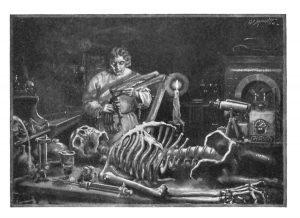For many musicians, there is a moment that changes everything for them; they get that one big hit or that one chance to make it happen for them, and they do not even realize it at the time. It may not be how they imagined it or it may not have been what they had wanted for their life, but there were chances to take and go for it.
Elvis was an awkward kid growing up, having lost his twin and being close to his mother and his father, and having his own issues to deal with. He found ways to come out his shell, but what he was really passionate about was music. Growing up, he found ways to get into music, singing with the church choir or to himself, he knew that music was it for him.

When he was ten years old, he sang for a contest in the Mississippi-Alabama Fair and Dairy Show in Tupelo.1 He was still too short to reach the microphone so he had to stand on a stool to help him reach. Even though he had no musical accompaniment, he got up and performed; he came in fifth place.2 Even though he lost, he continued to explore music, and eventually he became Elvis. But how did that happen?
For his birthday, his mother Gladys gave him a guitar. His uncle taught him chords, and Frank Smith, a preacher at an Assembly of God Church, also gave him lessons on how to play.3 He was fortunate to have these people to show him how to play, something that would come in handy later in his life. He would later become a regular performer at the Country Music Jamboree outside the Tupelo courthouse.4 He had his guitar and would take it with him to school every day, even though his classmates would make faces and ridicule him for the music he played. He still continued to do what he loved.5 Elvis ignored them and did what he wanted; he had set a goal for himself, and he was going for it.
When Elvis was thirteen, his father moved the family to Memphis; there, Elvis would hear the music coming from the black neighborhood, although he had heard some similar sounds in Tupelo.6 He was always hearing sounds; he had a talent for picking up sounds.7
Nobody thought he would have gotten to that point; he had failed music class in high school, and a teacher had even rejected him from joining the glee club. He was also rejected by a gospel quartet he was set on joining.8 It was a big disappointment for him, and he seemed to be discouraged by everyone around him, even his own father.
In August 1953, Elvis had finally gotten up the nerve to go the Memphis Recording Service; he claimed that he wanted to record a song for his mother. An associate of Sam Phillips was there that day, who liked what he heard and kept a copy of the recording Elvis had done.9 Elvis was discovered when he had already graduated from high school. His breakout occurred late in the evening on July 5, 1954 during a late-night recording session that had proved unfruitful, until Elvis started improvising on the 1940s blues song, “That’s All Right (Mama).” Sam Phillips, the head of Sun Records, happened to be in the studio to hear the improvisation of Elvis with two other local musicians. Elvis had the sound that Phillips said he could make a billion dollars, “if he could find a white man who had the Negro sound and the Negro feel.”10 Elvis had that sound.11 It was then, at that moment, that Elvis just happened. He was new, something that people were not used to yet. He was not like every other star. Though once he was discovered, he was awkward, self-conscious, nervous, he mumbled, but he was making it.12 No matter, this was the step that Elvis needed in order to be headed in the direction of greatness. He was going to make it, though in those first sessions, they were not successful; they kept on trying to achieve that sound only Elvis had, and finally it all worked out. It came out of nowhere; he did it himself. This time was only stepping stones for him, but nonetheless it was what needed to be taken; heading the direction toward the person we know today as the King of Rock n Roll.
- Bobbie Ann Mason, Elvis Presley (New York: Viking Books, 2003), 17. ↵
- Mason, Elvis Presley, 18. ↵
- Glen Jeansonne, David Luhrssen, and Dan Sokolovic, Elvis Presley, Reluctant Rebel: His Life and Our Times (Praeger, 2011), 11. ↵
- Glen Jeansonne, David Luhrssen, and Dan Sokolovic, Elvis Presley, Reluctant Rebel: His Life and Our Times (Praeger, 2011), 11. ↵
- Peter Guralnick, Last Train to Memphis: The Rise of Elvis Presley (Little, Brown & Company, 1994), 27. ↵
- Mason, Elvis Presley, 19. ↵
- Mason, Elvis Presley, 20. ↵
- Mason, Elvis Presley, 23. ↵
- Mason, Elvis Presley, 25. ↵
- James Miller, Flowers in the Dustbin: The Rise of Rock and Roll, 1947-1977 (Fireside, 2000), 72. ↵
- Mason, Elvis Presley, 21. ↵
- Mason, Elvis Presley, 23. ↵


77 comments
Lianna Ybarra
I think you did a great job of continuing the story and the rise of how he became “Elvis”. I like the background story of his journey. He started out being rejected until one day someone came across him. It makes him seem like a humble human being. I think it’s good when people struggle at first because it makes them work that much harder and not take something for granted. I for sure have a new found respect for Elvis. He isn’t just what we see on movies or impersonators.
Nahim Rancharan
Elvis is a music icon and a Rock and Roll legend! His story is very inspirational and motivating. He shows that determination and perseverance can help you achieve your dreams no matter what obstacle may come your way. This article does a great job at reflecting the impact that Elvis has made in the music industry and in the lives of millions of people worldwide. It shows that although people may not acknowledge your talents, as long as you believe in yourself, anything can happen. And Elvis did just that. With his musical talents, he was able to make a name for himself and create a sound that was unlike any other. His songs are so iconic that it remains relative across generations. Elvis has made a great impact on the world and has left a legacy that will stand the test of time. Great Article!
Nicolas McKay
I read part one of your Elvis article and had to read the next one. You did a magnificent job once again, continuing the story of an ordinary man who would go on to become a legend. I had always appreciated his music, but it was not until I read your piece on him that I began to truly appreciate the person. You’ve brought a level of humanity to him that very few have.
Anayeli Prieto
The fact that the king of rock had failed music class as a kid and he never gave up shows that if you want something, you never give up on it because it could be a major part in your life. He was very loved for his music and was a sensation across the nation. His songs are very passionate and even was kind enough to write a song for his mother. He is definetly missed and will always be loved by his fans for his dedication and passion for music.
Gabriela Medrano
Elvis’s background story makes one feel sympathy for this poor, awkward kid he was but with all his triumph and success I believe he showed all those who discouraged him. I never drew him out as the self conscious kid he was and that only made me admire him even more. I am grateful for his persistency in achieving his goals, otherwise American culture may have been greatly altered. This is an interesting topic, the article truly appreciates the determination Elvis had so well done!
Steven Clinton
Amazing article! I wasn’t aware that the proclaim King of Pop was a shy guy. You wouldn’t really expect some one with his childhood background to become famous. Elvis Presley faced harsh criticism early on in life but he kept his dream close to his heart. It is inspiring to see people succeed through adversity and at the same time motivating.
Hayden Hollinger
This is a great article with many solid sources that provide the background of Elvis Presley’s breakthrough into the music world. I found it very interesting that Elvis faced many setbacks and rejections but continued to do what he wanted to do and work hard at achieving his dreams. I never realised that Elvis had a difficult upbringing and was not always the “cool” man that he is now seen by many to be.
Aaron Mcglown
This article is a great one! I liked the sources you used. They are strong and reliable so it makes your article that much better. Personal I have not taken a good listen to Elvis Presley but know he’s a great artist. Like many great artists he had a struggle in the beginning of his career but didn’t phase him and went on to have a great career. Good job.
Cesar Zavala
In reading this article, I found it hard to believe that ELVIS, the king of rock n’ roll, started off being bullied and made fun of for his ambitions. Had he not pushed through all of the negativity in his life, ranging from the death of his sibling, to the constant bullying and rejection from people who thought he would never make it, the world would’ve never heard the beautiful music of Elvis that inspired many other musicians to never give up on their dreams and aspirations. Great article!
Marissa Gonzalez
This was a great and well written article! It is interesting to learn about the humble beginnings of Elvis and how he did not give up after he was rejected. I never really knew the story about how Elvis came about and I am quite surprised that he started recording just to make a song for his mother. Due to his determination, he was able to become a legend. His unique sound made him stand out even more and which is a reason why Rock n Roll exists today.